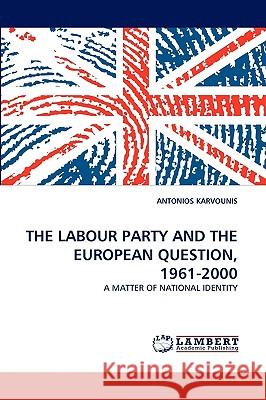The Labour Party and the European Question, 1961-2000 » książka
The Labour Party and the European Question, 1961-2000
ISBN-13: 9783838334486 / Angielski / Miękka / 2010 / 420 str.
The British Labour Party has had a troubled relationship with Europe throughout the post-war period in the 20th century. Despite the enduring policy differences, the anti-European biased Gaitskell's cry God for England and -a thousand years of history-, Foot's Little Englanderism, Jenkins' quest for -a special role- for his country and Blair's equally Europhile vision of a -Europe of separate identities-, they all seem to have in common an adherence to the nation-state and a mutual dislike of Britain being sucked into a European superstate. Bearing in mind the policy inconsistencies, this book, by defining national identity as a dynamic and relational concept in which race has been a constitutive element of nation at spatial, cultural and temporal levels, goes beyond the short-term motives of the party factions, and places its focus on the stable core of their beliefs in the nation-state. At a time that the debate over the national identity still provokes competing visions of nationhood in most European states, this work would be a useful tool for everyone who is interested in European and not just in British public affairs."
The British Labour Party has had a troubled relationship with Europe throughout the post-war period in the 20th century. Despite the enduring policy differences, the anti-European biased Gaitskells cry God for England and «a thousand years of history», Foots Little Englanderism, Jenkins quest for «a special role» for his country and Blairs equally Europhile vision of a «Europe of separate identities», they all seem to have in common an adherence to the nation-state and a mutual dislike of Britain being sucked into a European superstate. Bearing in mind the policy inconsistencies, this book, by defining national identity as a dynamic and relational concept in which race has been a constitutive element of nation at spatial, cultural and temporal levels, goes beyond the short-term motives of the party factions, and places its focus on the stable core of their beliefs in the nation-state. At a time that the debate over the national identity still provokes competing visions of nationhood in most European states, this work would be a useful tool for everyone who is interested in European and not just in British public affairs.











